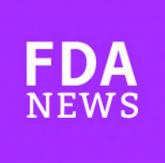The Food and Drug Administration approved nivolumab for the treatment of patients with metastatic non-squamous non–small cell lung cancer (NSCLC) that has progressed during or after platinum-based chemotherapy, along with a companion diagnostic to detect PD-L1 protein expression levels.
The FDA approved nivolumab for patients with metastatic squamous NSCLC with progression on or after platinum-based chemotherapy in March of this year. The October approval expands the use of nivolumab to include patients with non-squamous NSCLC.
The approval was based on improvement in overall survival (OS) in an international, multicenter, open-label, randomized trial comparing nivolumab to docetaxel in 582 patients with metastatic non-squamous NSCLC with progression on or after platinum-based chemotherapy, according to an Oct. 9 statement issued by the FDA.
Median OS was 12.2 months in patients treated with 3 mg/kg nivolumab every 2 weeks (n = 292) compared with 9.4 months in patients treated with 75 mg/m2 docetaxel every 3 weeks (n = 290). There was also a significant improvement in overall response rate in the nivolumab arm (19% vs 12%); the median response duration was 17 months in the nivolumab arm and 6 months in the docetaxel arm. There was no significant difference in progression-free survival. Patients with PD-L1 positive NSCLC had a greater survival benefit than did those with PD-L1 negative NSCLC, and therefore, the FDA also approved the PD-L1 IHC 28-8 pharmDx test to detect PD-L1 protein expression levels.
Serious adverse events were reported in 47 of the 292 patients in the nivolumab arm. The most common serious adverse events were pneumonia, pulmonary embolism, dyspnea, and pleural effusion. Immune-mediated adverse events included hypothyroidism/thyroiditis, rash, pneumonitis, diarrhea/colitis, hyperthyroidism, hepatitis, nephritis, limbic encephalitis, and polymyalgia rheumatica.
The most common grade 3-4 adverse reactions in the nivolumab arm were dyspnea, fatigue, pneumonia, pulmonary embolism, pleural effusion, hyperglycemia, respiratory failure, and pain. The most common grade 3-4 laboratory abnormalities included lymphopenia, hyponatremia, anemia, increased AST, and increased ALT, the FDA said.
This approval follows closely behind the accelerated approval of pembrolizumab to treat patients with metastatic NSCLC who have disease that has progressed after other treatments and tumors that express PD-L1. This anti–PD-L1 drug was also approved with a companion diagnostic, the PD-L1 IHC 22C3 pharmDx test.
Nivolumab is marketed as Opdivo by Bristol-Myers Squibb and the PD-L1 IHC 28-8 pharmDx test is marketed by Dako North America Inc. Full prescribing information is available here.
lnikolaides@frontlinemedcom.com
On Twitter @NikolaidesLaura
